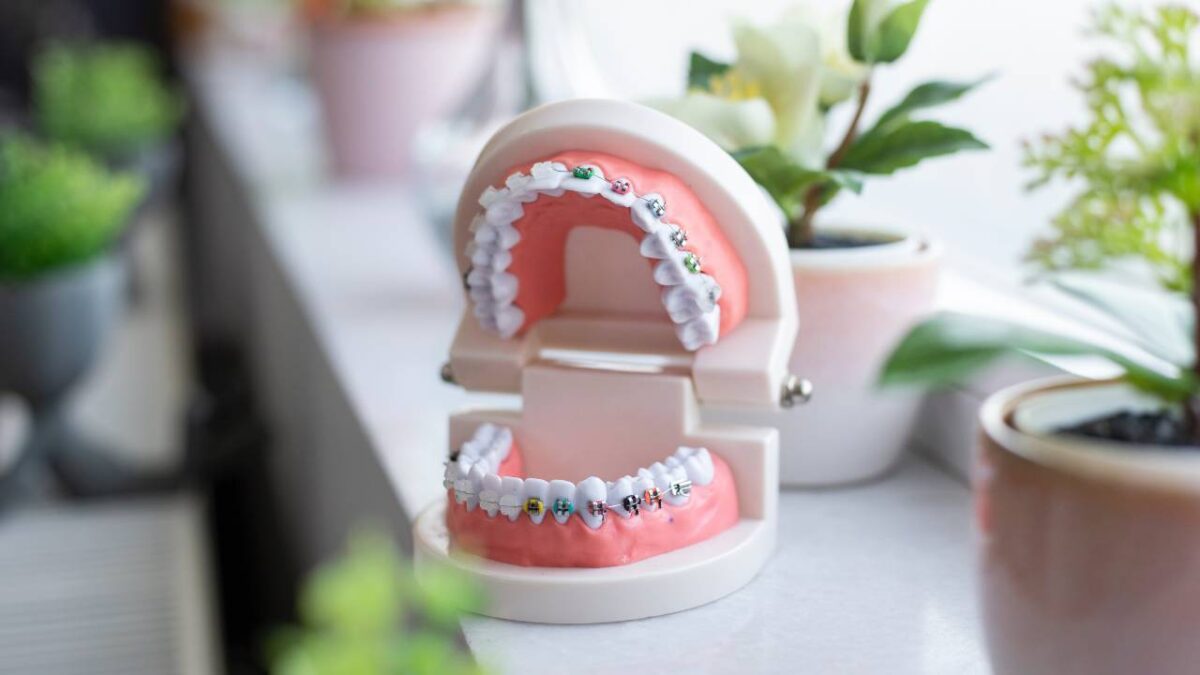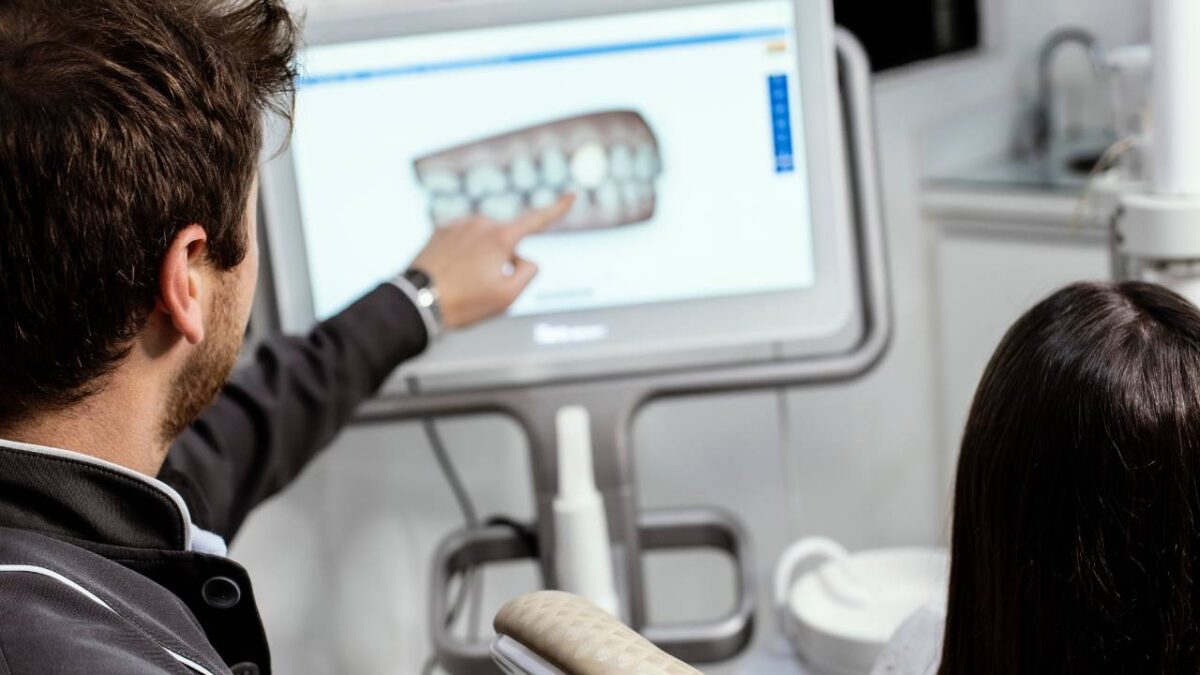A bright, confident smile can work wonders for your self-esteem. The appearance of your teeth plays a significant role in how you feel about your overall appearance and can affect your interactions with others. Dental design focuses on improving the aesthetics of your teeth, aligning your smile for the better, and potentially transforming your self-perception. This article will discuss the impact dental design can have on your self-esteem, and the psychosocial benefits it can provide.
The Psychology Behind Dental Aesthetics
Perception of Self and Oral Health
When it comes to oral health, aesthetics play a significant role in how you perceive yourself and your overall well-being. A healthy, attractive set of teeth can enhance your confidence and self-worth thanks to the power of first impression. On the other hand, having dental issues such as discolouration, decay, or tooth loss can negatively impact your self-esteem.
Ensuring proper oral hygiene by brushing and flossing regularly is not only essential for maintaining a beautiful smile but also for promoting overall health. Studies suggest that there is a strong connection between oral health and systemic diseases like cardiovascular disease and diabetes. So, be mindful of your dental care routine to maintain both physical and mental well-being.
Dental Aesthetics and Self-Image
An attractive smile can do wonders for your self-image and self-confidence. Your smile is often the first thing people notice when they meet you, and a radiant, healthy smile can create a positive and lasting impression.
In today’s world, where social media has become a fundamental aspect of everyday life, having a picture-perfect smile has grown in importance. Many people feel judged by their appearance and, as a result, may become more self-conscious or feel pressured to have a flawless smile.
Thankfully, advances in dental treatments such as teeth whitening, veneers, and orthodontic procedures have made it possible to improve your smile’s appearance. However, remember that it is equally crucial to focus on the underlying health of your teeth and gums.
Psychological Impacts of Dental Appearance
There are various ways that dental aesthetics can have a psychological impact on your life. Some people with dental concerns may experience social anxiety, fear of judgement from others, or feel self-conscious during face-to-face interactions. These emotions can lead to feelings of isolation, depression, or low self-worth.
In terms of social interactions, struggling with dental concerns may make it challenging to feel at ease when smiling, talking, or laughing. Professionally, individuals might face difficulties in presenting, public speaking, or establishing meaningful connections. Personal relationships may also be impacted, leading to challenges in expressing emotions or developing intimacy.
The good news is that addressing any dental concerns and improving your oral health can make a significant difference in your overall mental health and well-being. As you invest time and effort into your dental care, you’ll notice a positive shift in your self-image, leading to increased confidence in social, personal, and professional spheres.
Orthodontics and Self-Confidence
Impact of Malocclusion on Self-Esteem

Malocclusion, or a misalignment of teeth, can heavily influence your self-esteem. Aesthetic appearance is a key factor that affects confidence in public settings. A poorly aligned smile can lead to feelings of self-consciousness and insecurity, and even impact your social life.
Orthodontic Treatment and Psychosocial Benefits
Orthodontic treatment can improve your self-confidence in several ways. When teeth are aligned, you’re more likely to showcase them with your smile. A great smile can enhance non-verbal communication and boost your overall confidence. Additionally, orthodontic treatment offers various health benefits such as improved oral hygiene, reduced risk of tooth decay, and even addressing dental implant issues.
Here are some ways orthodontic treatment can improve your well-being:
- Aesthetic improvement – Straight teeth contribute to an attractive, confident smile.
- Oral hygiene – Properly aligned teeth are easier to clean, reducing the risk of gum disease.
- Chewing efficiency – Correctly aligned teeth can improve the effectiveness of your bite.
- Speech improvement – Orthodontic treatment may correct issues with speech due to alignment problems.
Aesthetic Concerns in Orthodontic Decision-Making
When considering orthodontic treatment, aesthetic concerns often play a significant role in the decision-making process. After all, many people pursue orthodontic treatment to improve the appearance of their smile. Here are a few factors to consider when contemplating orthodontic treatment:
- Consultation – Discuss your goals with your orthodontist. They can recommend appropriate treatment options to achieve the desired outcome.
- Treatment options – There are various orthodontic treatments to choose from, such as getting a dental implant, traditional braces, and clear aligners, depending on your specific need.
- Expected results – Prioritise treatments that address your aesthetic concerns while providing functional benefits, like improved oral hygiene and facial balance.
- Cost – Treatment costs can differ. Choose an option which aligns with your budget and offers the desired improvements to your smile.
Orthodontic treatment can be life-changing, promoting self-confidence by improving your smile and overall oral health. Long-lasting results can enhance your social interactions while making you feel more at ease in various situations. Carefully consider your treatment options, prioritise factors important to you, and ultimately choose the path that best fits your needs. Your beautiful, confident smile awaits!
Quantitative Measures of Self-Esteem
The PIDAQ and Rosenberg Self-Esteem Scale
When discussing self-esteem in relation to dental design, two main questionnaires come to mind: the PIDAQ (Psychosocial Impact of Dental Aesthetics Questionnaire) and the Rosenberg Self-Esteem Scale (RSE). The PIDAQ is a standardised measurement tool specifically designed to assess the psychosocial impact of dental aesthetics on your life. It focuses on four domains: dental self-confidence, social impact, psychological impact, and aesthetic concern.
On the other hand, the Rosenberg Self-Esteem Scale (RSE) is a more general self-esteem assessment tool, widely used and well-validated. It measures your overall self-worth through 10 items, which you rate on a four-point scale.
Using these two questionnaires together can provide valuable information about how dental design can impact your self-esteem and overall well-being.
Assessing Self-Esteem in Dental Contexts
Now, let’s dive into how these two scales can be used in the dental context.
- Self-perceived dental impact – One important aspect of assessing self-esteem in dental contexts is understanding the self-perceived dental impact. This refers to how you perceive the influence of your dental appearance on your daily life. The PIDAQ serves as a perfect tool for assessing this, given its specific focus on dental aesthetics.
- Comparing perceived dental impact with overall self-esteem – To gain a more comprehensive understanding of how dental design influences self-esteem, it’s helpful to compare the results of the PIDAQ to those of the RSE. By doing so, you can see if there’s a correlation between your dental aesthetics and overall self-esteem.
- Quantitative results from both scales – It’s important to interpret the scores from both scales accurately. For the PIDAQ, higher scores indicate a greater negative psychosocial impact of dental aesthetics. In the case of the RSE, higher scores indicate higher self-esteem. By analysing these scores, dental professionals can better understand the relation between a person’s dental design and their self-esteem.
Social and Health Considerations
Social Impact of Dental Aesthetics

It’s undeniable that your smile plays a significant role in your day-to-day interactions. A pleasant smile can have positive effects on your social life, career, and relationships. On the other hand, not being confident in your dental appearance may lead to feelings of embarrassment irrespective of age or gender. Let’s have a look at some factors that contribute to dental aesthetics and their social impact:
- Tooth Colour – Discoloured teeth can make you feel self-conscious, leading you to avoid smiling or speaking openly.
- Tooth Alignment – Misaligned or crooked teeth might affect your self-esteem and cause you to refrain from engaging in social activities.
- Missing Teeth – Gaps in your smile due to missing teeth can impact your speech and make eating in public uncomfortable.
Therefore, it’s crucial to address any dental aesthetic issues by consulting with a dental professional. They can provide appropriate treatments such as teeth whitening, orthodontics, or dental implants to enhance your smile and boost your self-esteem.
Oral Health-Related Quality of Life
Oral health is not only about having a beautiful smile; it’s also about ensuring that your teeth and gums are healthy. Your oral health directly impacts your overall wellbeing and quality of life. Let’s explore some aspects of oral health-related quality of life:
- Physical Health – Dental problems like gum disease, cavities, or abscesses can cause pain and affect your ability to eat and speak. Proper oral care, including regular dental check-ups, can help prevent these issues.
- Mental Wellbeing – Poor oral health can contribute to stress, anxiety, and depression. By taking care of your teeth and gums, you’ll feel more relaxed and confident in social situations.
- Functional Ability – Sound oral health enables you to carry out essential functions like chewing and speaking with ease. It contributes to your overall quality of life by allowing you to enjoy various foods and engage in social interactions without any hindrance.
Population-Specific Observations
Self-Esteem in Adolescents and Young Adults
During the teenage years and early adulthood, you may notice more significant challenges to your self-esteem. As your body is changing, so are your perceptions of your appearance and your confidence levels. A 2017 study found that dental aesthetics play a vital role in self-esteem for adolescents and young adults.
- In adolescents with malocclusion, self-esteem levels were considerably lower compared to those with well-aligned teeth.
- The same study found that undergoing orthodontic treatment resulted in significant improvements in self-esteem.
Gender Differences and Dental Design
Additionally, you may wonder if there are gender differences when it comes to dental design and self-esteem. Research has shown that:
- Women are more likely than men to consider their dental appearance important.
- The impact of dental aesthetics on self-esteem appears to be more significant for women.
Orthodontic Treatment in Adults and the Elderly
While most orthodontic treatments are associated with children and teenagers, more adults and the elderly are considering dental treatments to improve their appearance. You may find these benefits in seeking orthodontic treatment in adulthood:
- A study found a positive correlation between oral health and self-esteem in adults undergoing orthodontic treatment.
- Increased satisfaction with one’s appearance can result in enhanced overall wellbeing and quality of life.
Prevalence and Influencing Factors
Impact of Sociodemographic Factors on Dental Self-Esteem

Understanding the dynamics of dental self-esteem requires delving into sociodemographic factors such as age, gender, race, and professional profile. For instance, students, due to constant peer judgement, may find themselves particularly conscious about their dental appearance, directly impacting their self-esteem. This heightened awareness can extend to academic settings, where a confident smile plays a role in public speaking and group discussions.
Age is a significant factor, with younger individuals often more attuned to societal norms, expectations, and peer pressures, influencing their dental self-esteem. Gender differences come into play, as research suggests that women generally place more emphasis on their dental appearance and hygiene. Racial disparities in oral health beliefs and practices also contribute to varying levels of dental self-esteem.
Moreover, one’s professional profile can significantly shape perceptions of dental appearance. Individuals in roles where personal presentation is crucial for designing a dream career, such as sales or customer service, may find themselves placing heightened importance on their dental looks.
The Role of Psychological Aspects in Treatment Outcome
Another crucial aspect to consider is the role of psychological factors in the outcome of dental treatments. Feeling good about your smile can make a significant difference in how you perceive yourself, leading to a positive cycle where improved self-esteem leads to better adherence to dental care.
Some noteworthy psychological aspects impacting treatment outcomes are:
- Perceived need for dental care
- Fear or anxiety related to dental procedures
- Trust in the dentist or dental team
- Motivation to maintain good oral hygiene
Dental Design Interventions
Bio-Psycho-Social Intervention Programs
In order to improve self-esteem through dental design interventions, it’s essential to consider bio-psycho-social intervention programs. These programs focus on addressing the biological, psychological, and social factors contributing to your overall well-being. In the context of dental design, these programs might include:
- Dental aesthetics treatments – Enhancing the appearance of your teeth and smile through procedures such as teeth whitening, veneers, or orthodontic treatments.
- Oral health education – Providing you with information on how to maintain a healthy smile, prevent dental issues and improve overall oral hygiene.
- Psychological counselling – Assisting in managing dental anxiety or self-esteem issues related to dental appearance.
Role of Cognitive-Affective Variables in Treatment
The role of cognitive-affective variables in dental design treatment is crucial for understanding how these interventions impact your self-esteem. Some key variables include:
- Satisfaction – Your satisfaction with the treatment outcomes, such as improved dental aesthetics, will influence how positively you perceive your teeth and smile.
- Personality – Some aspects of your personality, like openness to change, can affect the degree of improvement in self-esteem after dental design treatments.
- Expectations – It’s important to maintain realistic expectations about the outcomes of dental interventions to avoid disappointment, which could negatively affect your self-esteem.
Conclusion
Dental aesthetics, a key factor in appearance and social interactions, significantly shapes our confidence professionally and personally. Investing in dental health yields benefits like an improved self-image, heightened life satisfaction, and positive social interactions.
It’s crucial to recognize that dental aesthetics goes beyond vanity, impacting mental health. Consulting a dental professional for design concerns contributes to achieving these goals.
Ultimately, prioritising dental design enhances physical appearance, self-esteem, and overall quality of life. Invest in your dental health for a positive impact on your mental and emotional well-being.






